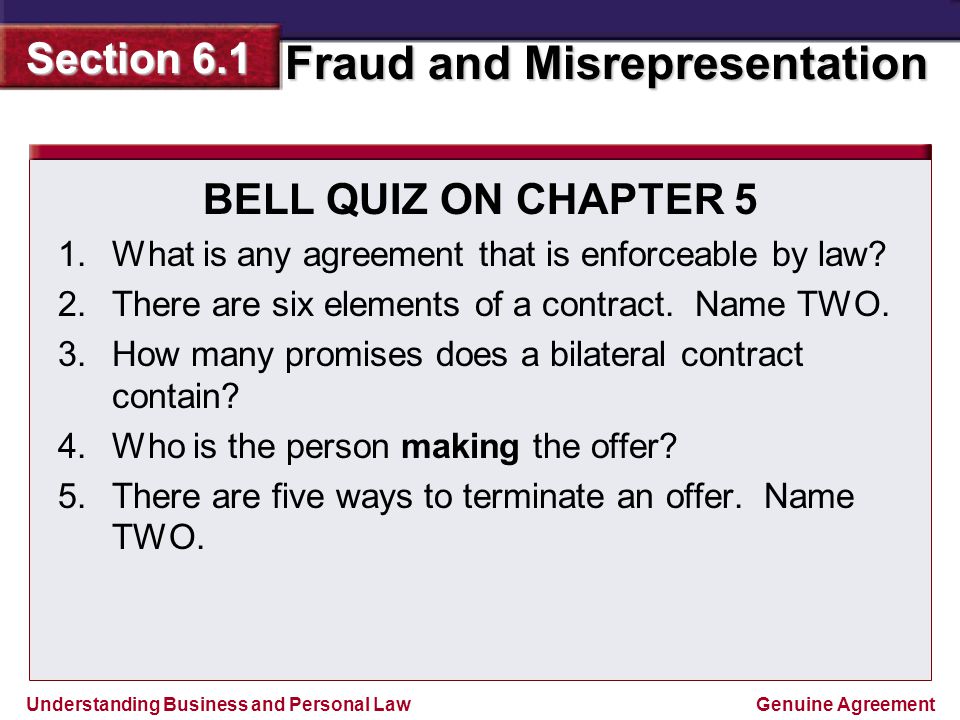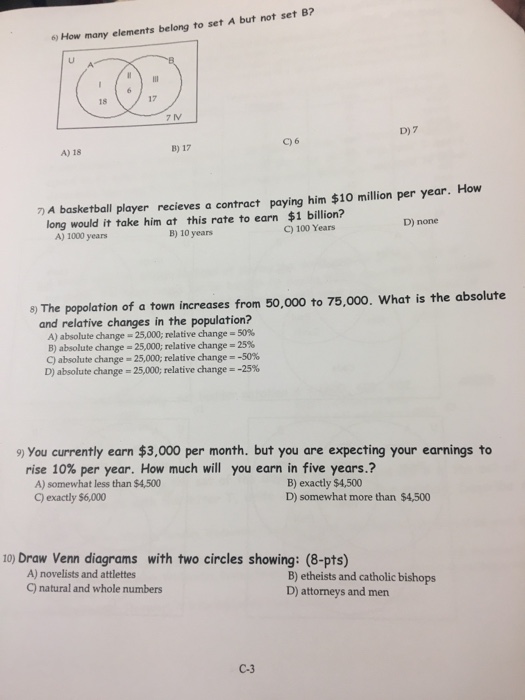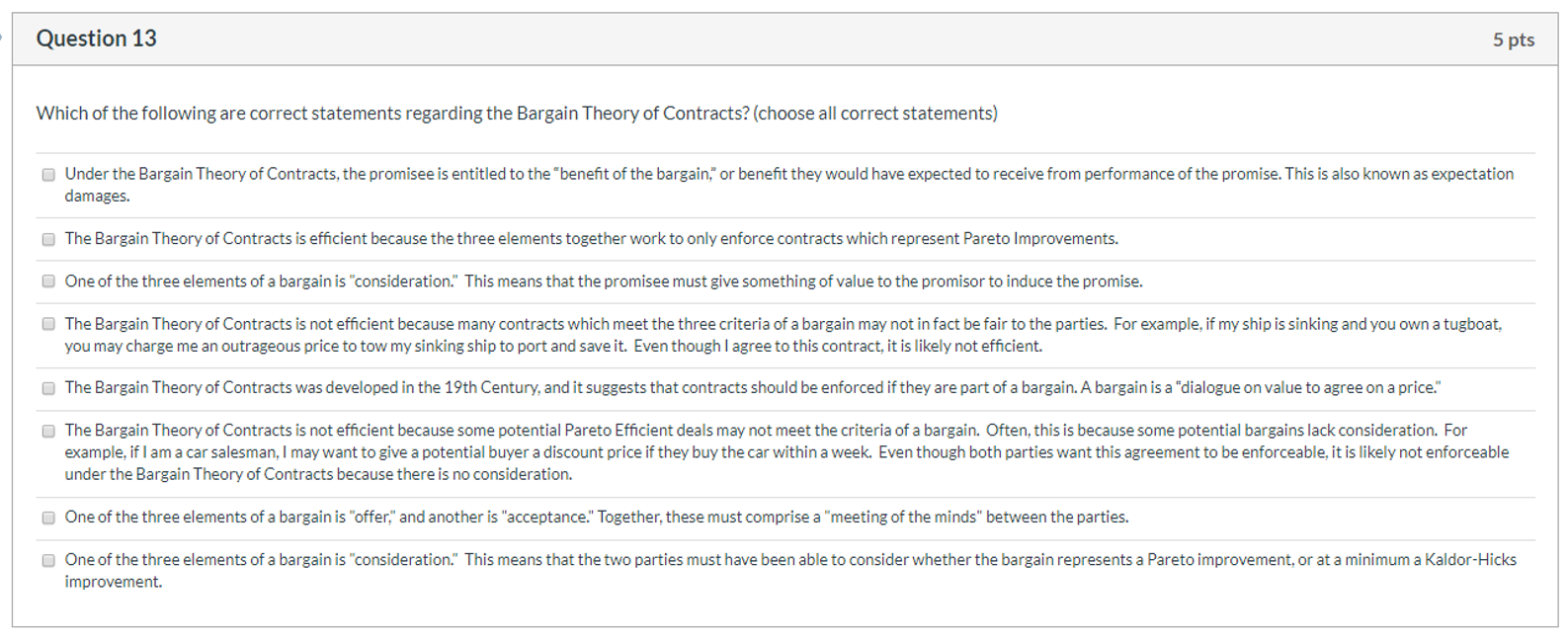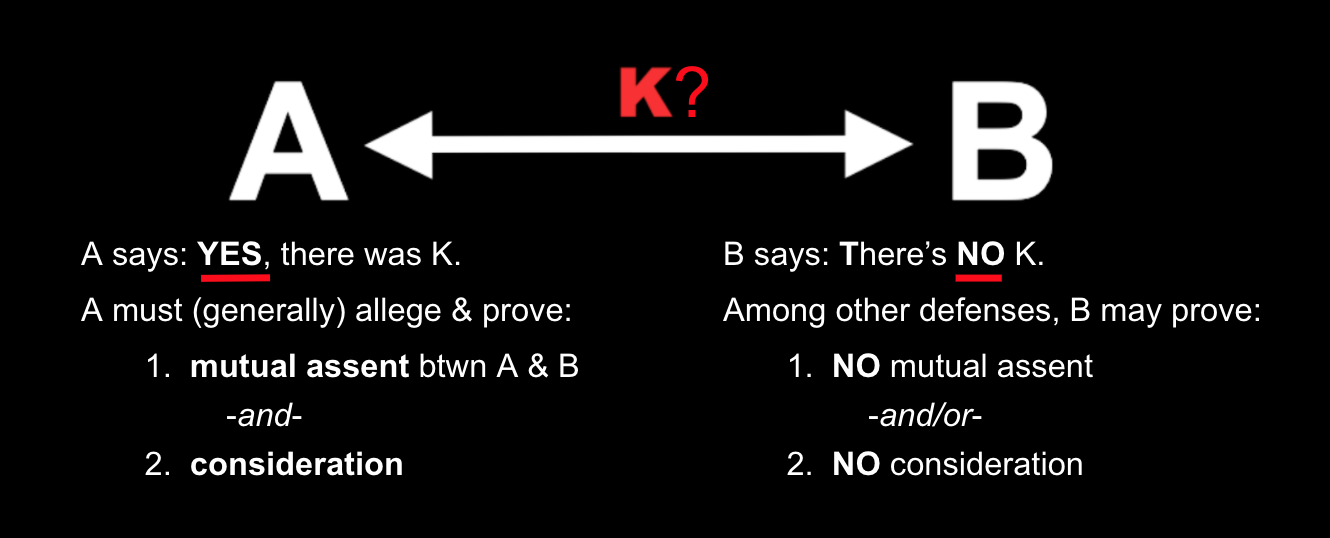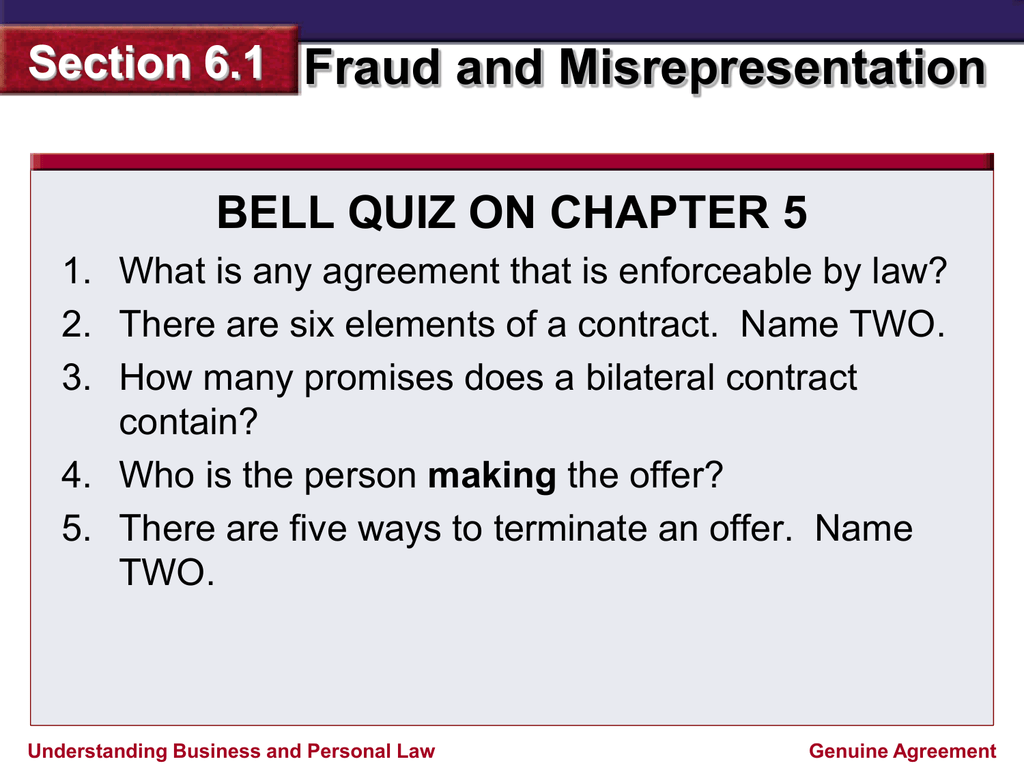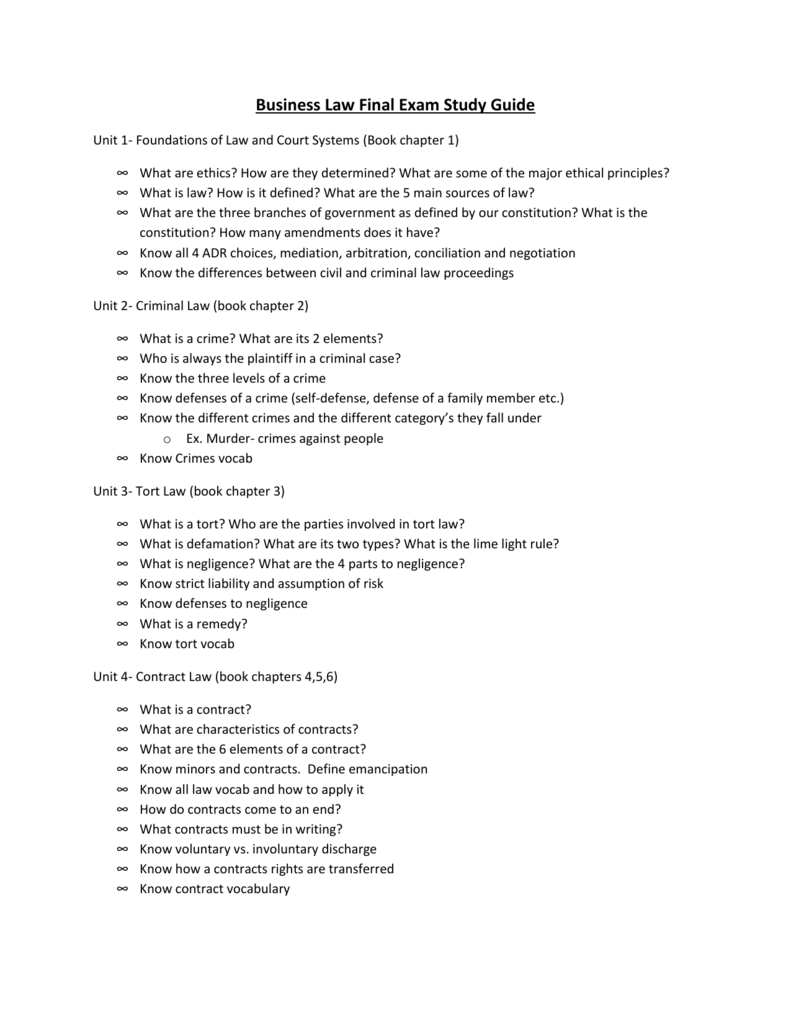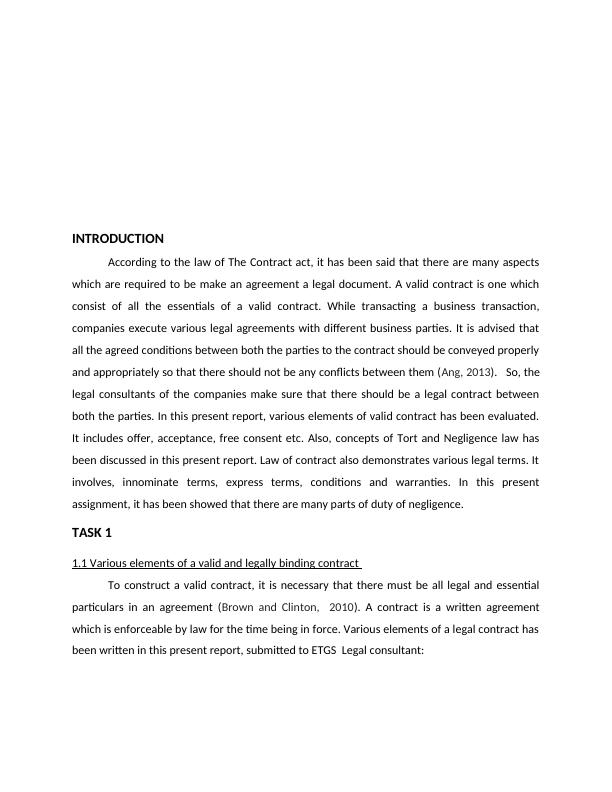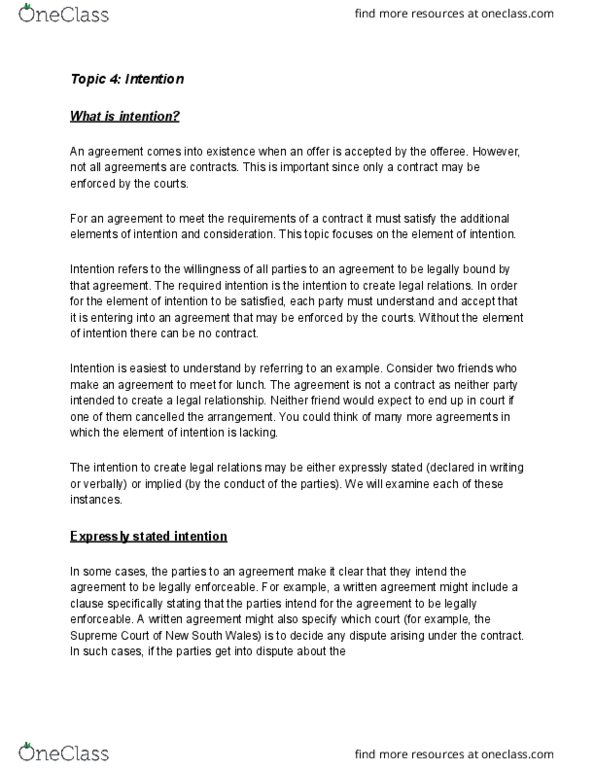How Many Elements Are There To A Contract

There are six required essential elements for a contract to be valid enforceable by a court.
How many elements are there to a contract. In order to be enforceable the contract must contain seven elements. The elements of a general contract. While more specific requirements may differ by state the basics of contract law require that these seven elements exist regardless of where the contract is formed. A contract is a legal document between two parties.
Elements of a contract. The requisite elements that must be established to demonstrate the formation of a legally binding contract are 1 offer. 4 mutuality of obligation. Offer acceptance and mutual consent.
Agreement capacity consideration and intention. Elements of a contract the requisites for formation of a legal contract are an offer an acceptance competent parties who have the legal capacity to contract lawful subject matter mutuality of agreement consideration mutuality of obligation and if required under the statute of frauds a writing. The three elements required to create a legal contract are offer acceptance and consideration which means the exchange of something of value. The complaining party must prove four elements to show that a contract existed.
For example b offers to buy a s automobile for a specific price and a accepts the offer and agrees to give b the automobile upon receipt of those specific funds. For a contract to be valid it must have four key elements. These elements are classified into two broad categories. In order for an insurance contract to be legally binding certain essential requisites must be stipulated in the contract.
The 7 essential elements of a contract are the offer acceptance meeting of the minds consideration capacity legality and sometimes a written document. Most contracts are bilateral meaning both parties are in agreement and the four basic elements of a contract exist. Offer one of the parties made a promise to do or refrain from doing some specified action in the future. And in certain circumstances 6 a written instrument.
Offer and acceptance. 5 competency and capacity. Unilateral versus bilateral contracts. The first three considered here together relate to the agreement itself and the other three relate to the parties making the contract.


